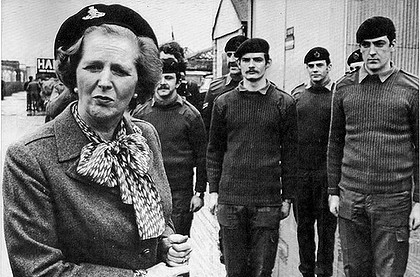“Northern Ireland is boring” has been every London news editor’s motto for a lifetime. News by definition requires new developments to be “News” and what was seen from newsdesks as the endless monotony of the Troubles was a killer not just of people but circulations. And weren’t there bigger and better conflicts all over the place to use up the limited stock of compassion? Remember the cynical old maxim: “one killing in England is worth a hundred in Northern Ireland.”
When the “miracle” of the GFA happened, the media gorged on “peace” warts and all for a while, declared a victory and moved out. Such recent reporting as there has been, apart from the odd burst on tourism via Game of Thrones, has focused mainly on Northern Ireland’s exception from mainstream British trends, abortion and equal marriage by the left leaning media ; an amnesty for military veterans and the DUP’s unpopular hold over the riven minority Tory government over Brexit and the border, on the right.
As a tragic news event, the murder of Lyra McKee was a case of having it all; the killing almost on camera of a wonderfully articulate young woman of the LGBT generation, the drama of applause in the cathedral that turned the tables on the grandstanding politicians capitalising on the surge of human sympathy over a notable death.
Media commentator Roy Greenslade joined Slugger in deploring the widespread failure to report the Ballymurphy inquests when the right wing papers were beating the drum in support of the campaign for de facto Troubles amnesty for former soldiers.
Greenslade has now identified two other recent lacunae; the ongoing “Thatcher: a very British Revolution” documentary series on BBC 2 and the quashing of the police action against the two journalists who made theriveting documentary questioning police handling of the investigation into the Loughinisland murders. The latter is an easy hit because it raises the issue of media freedom in its starkest form since the farcical attempts in the Thatcher era to thwart interviews with Sinn Fein.
BBC Two’s supposedly definitive five-part series on the “irresistible rise and dramatic downfall of Margaret Thatcher” has, in the main, been warmly received by critics….
I was enjoying it, too, until I realised the makers of Thatcher: A Very British Revolution, passed 1981 without mentioning an episode that made headlines across the world: her intransigent response to the IRA hunger strike which ended with the deaths of 10 men.
Why the omission? When I asked the BBC, it gave this unconvincing reply: “In five hours of programming, the series aimed to capture as much as possible of Margaret Thatcher’s career, her life and her relationship with her inner circle over the course of 20 years and, as such, difficult editorial decisions had to be made. Unfortunately, this meant that not every event that occurred during Thatcher’s time in power could be included in the final series.”
Really? A statement by the BBC documentary unit’s creative director, Aysha Rafaele, hints at a much more plausible reason. The series is, she said, “a forensic look” at Thatcher’s “impact and legacy on all corners and all aspects of British life.”
Note the “British”. It suggests, yet again, that Northern Ireland is not regarded as truly British…
The series did cover the Brighton bomb, but to illustrate her character rather than describe its impact on her actions, other attacks much affecting her being the assassination of close associates Airey Neave and Ian Gow at opposite ends of her premiership. The impact on Mrs Thatcher of all these very targeted IRA operations including the assassination of Lord Mountbatten and the Warrenpoint massacre on August Bank holiday 1979 was well worth examination.
Why did police trample on the rights of Birney and McCaffrey? There may be some innocent explanation not yet proffered. Otherwise, choose from this list: embarrassment at the failure to arrest the killers named in the film; an attempt to prevent light being shone on the murky business of collusion between police and loyalist murderers; a diversionary tactic to avoid the implications of the message by demonising the messengers. Or, of course, a combination of the above.
“Embarrassment at the failure to arrest the killers named in the film” might be explained by police omerta and the destruction of evidence, (the car, as in the case of the Omagh bombing) and a shot across the bows of the reporters and by implication the ombudsman, for identifying a suspect, thus constituting a potential threat to life.
Former BBC journalist and manager in Belfast, Manchester and London, Editor Spolight; Political Editor BBC NI; Current Affairs Commissioning editor BBC Radio 4; Editor Political and Parliamentary Programmes, BBC Westminster; former London Editor Belfast Telegraph. Hon Senior Research Fellow, The Constitution Unit, Univ Coll. London
Discover more from Slugger O'Toole
Subscribe to get the latest posts to your email.

